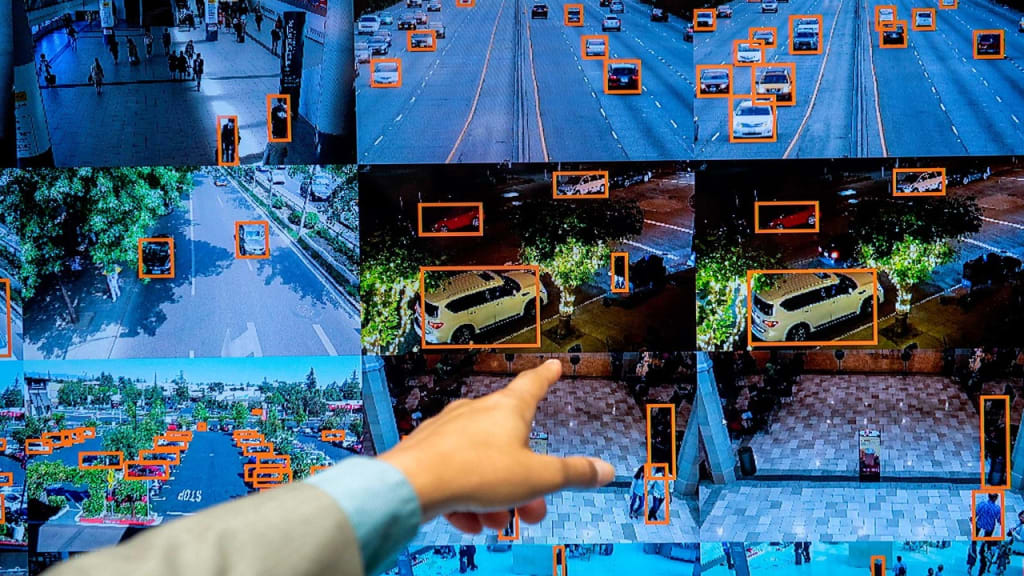AI Systems
Exploring Their Functions and the Future of Artificial Intelligence

AI Systems: Exploring Their Functions and the Future of Artificial Intelligence
Artificial Intelligence (AI) systems have emerged as transformative technologies that are revolutionizing various industries and aspects of our lives. These intelligent systems, capable of performing tasks that typically require human intelligence, have gained prominence due to their ability to analyze vast amounts of data, make predictions, learn from experience, and automate complex processes. In this article, we delve into the world of AI systems, exploring their functions, applications, and the exciting possibilities they hold for the future. From enhancing productivity and decision-making to driving innovation and shaping the way we live and work, AI systems are reshaping our world.
1. Understanding AI Systems: AI systems are computer programs designed to simulate human intelligence and perform tasks with a level of autonomy. They rely on algorithms, machine learning, and deep neural networks to process and interpret vast amounts of data, learn from patterns, and make informed decisions. AI systems can be classified into narrow AI, which focuses on specific tasks, and general AI, which exhibits human-level intelligence across a wide range of tasks.
2. Functions and Applications of AI Systems: AI systems have a broad range of functions and applications across various industries. Here are some key areas where AI systems are making a significant impact:
a. Machine Learning and Predictive Analytics: AI systems excel at analyzing large datasets and identifying patterns. They enable organizations to leverage predictive analytics to make data-driven decisions, optimize processes, and identify trends for better business outcomes.
b. Natural Language Processing (NLP) and Chatbots: AI systems equipped with NLP capabilities can understand and interact with human language. Chatbots, powered by AI, are being used in customer service, providing quick responses and personalized assistance.
c. Image and Speech Recognition: AI systems have advanced image and speech recognition capabilities, enabling applications such as facial recognition, object detection, and speech-to-text transcription. These technologies find applications in areas like security, healthcare, and automation.
d. Autonomous Vehicles: AI systems are playing a pivotal role in the development of self-driving cars. They process real-time data from sensors, cameras, and GPS to navigate and make driving decisions, enhancing road safety and transportation efficiency.
e. Healthcare and Diagnostics: AI systems have the potential to revolutionize healthcare by analyzing medical data, assisting in diagnoses, and predicting disease outcomes. They can aid in the early detection of diseases, improve treatment plans, and enhance patient care.
3. Ethical Considerations and Challenges: The rapid advancement of AI systems also raises important ethical considerations and challenges. Key issues include data privacy and security, algorithmic bias, job displacement, and the accountability of AI systems. Ensuring transparency, fairness, and responsible use of AI systems is crucial to mitigate potential risks and promote trust in these technologies.
4. The Future of AI Systems: The future of AI systems holds immense promise and potential for transformative advancements. Here are some key areas where AI is expected to shape the future:
a. Enhanced Automation: AI systems will continue to automate routine tasks, freeing up human workers to focus on more creative and complex endeavors. Industries such as manufacturing, logistics, and customer service will witness increased automation, leading to higher productivity and efficiency.
b. Personalized Experiences: AI systems will enable personalized experiences across various domains, including e-commerce, entertainment, and healthcare. They will analyze individual preferences, behavior, and historical data to offer tailored recommendations, content, and services.
c. Smart Cities and Internet of Things (IoT): AI systems will play a crucial role in building smart cities, where interconnected devices and systems collect and analyze data to optimize resource management, improve public services, and enhance the quality of life.
d. Healthcare Revolution: AI systems will revolutionize healthcare by accelerating drug discovery, improving medical imaging and diagnostics, and enabling precision medicine. They will empower healthcare professionals with advanced decision support systems and help address global healthcare challenges.
e. Ethical and Responsible AI: As AI systems become more prevalent, ensuring ethical and responsible AI becomes paramount. Efforts will focus on developing robust frameworks, regulations, and standards to address ethical dilemmas, mitigate bias, and protect individual rights.
Conclusion
AI systems are reshaping our world, revolutionizing industries, and transforming the way we live and work. Their functions and applications span a wide range of domains, from predictive analytics and natural language processing to autonomous vehicles and healthcare diagnostics. However, with great power comes great responsibility. Addressing ethical considerations and challenges is crucial to harness the full potential of AI systems and ensure their responsible and beneficial use. Looking ahead, the future of AI systems holds great promise, with enhanced automation, personalized experiences, smart cities, and groundbreaking advancements in healthcare on the horizon. As we navigate this transformative era, fostering collaboration between researchers, policymakers, and stakeholders will be essential to shape an AI-driven future that is beneficial, inclusive, and aligned with our values.
About the Creator
imran khalil
In a world where words shape our perceptions, ignite our imaginations, and connect us across time and space, article writers play a crucial role in delivering informative and engaging content. Among these skilled communicators,
Enjoyed the story? Support the Creator.
Subscribe for free to receive all their stories in your feed. You could also pledge your support or give them a one-off tip, letting them know you appreciate their work.





Comments
There are no comments for this story
Be the first to respond and start the conversation.